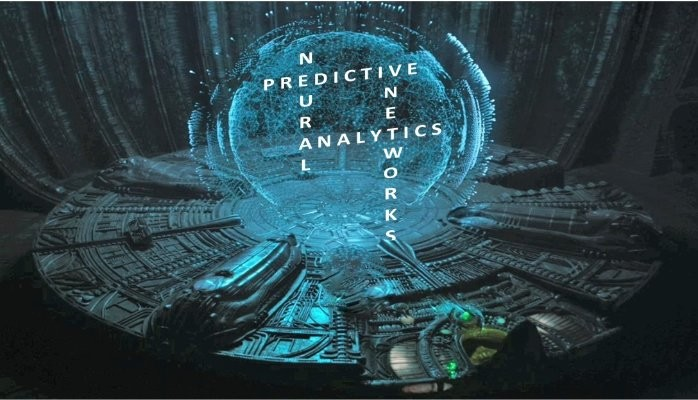
What makes a good manager? Someone who listens well? Someone who communicates to the team better? Someone who facilitates teamwork? Or all of it?
Daniel Goleman in his famous book ‘PRIMAL LEADERSHIP: REALIZING THE POWER OF EMOTIONAL INTELLIGENCE' writes – “Gifted leadership occurs where heart and head—feeling and thought—meet. These are the two wings that allow a leader to soar”
When it comes to selecting the best managers and leaders of all, managerial soft skills is something that every employer should take into consideration. Such skills help managers overcome the challenges they face while managing teams. Because as much as a manager's knowledge and expertise plays an important role, there are certain qualities and characteristics that helps managers function with greater brilliance, especially when the nature of our work has changed from in-office to distributed teams after Covid-19 pandemic.
A new Gallup Study found that managers account for at least 70% of variance in employee engagement scores across the business units; but only one in 10 people possess the talent to manage. The same study also found that managers with the right talent contribute to about 48% higher profit to their companies than average managers do.
So employees might possess a soft skill or two to be a good manager. But if we talk about the right combination of soft skills that facilitate one another, very few have that.
This is why it is critical to know about Managerial Soft Skills, and which are the top ones employers should be aware about. Here is a list of soft skills and when do you need them the most in managers –
While bonding with the team –
- Social Skills
Managers with strong social skills are able to communicate information from top to bottom properly. They pick up the social cues easily and respond mindfully, even in the distributed work environment. This becomes especially important since managers don't get as many cues they used to in the in-office environment. They pay attention to the team members and show genuine interest while talking, which makes them more effective than their counterparts. Tímea Šeben Zaťkováa and Miroslav Poláček share their findings in a paper titled ‘Social Skills as an Important Pillar of Managerial Success'. The results showed a proven connection among social skills and managerial positions; and that social skills influence the success in the managerial position and in the career growth of the manager.
Social skills can be effective not just in terms of putting across one's viewpoint, but also in effective communication and overall influence over the team members. Team members see social managers as extremely approachable, too. Shyam S. Salim and Nivedita Shridar also discuss how Social Skills affect one's proficiency in managing relationships, building networks, an ability to find common ground and building rapport. This results in a persuasive leader/manager who has an expertise in building and leading the workforce.
- Empathy
Empathetic managers are able to put themselves in the shoes of the employees and are therefore aware of their needs. They understand the ‘WHYs' behind low performance and workplace behaviour. This automatically makes such managers create a more helping and supportive environment for the employees to become more productive. Microsoft CEO Satya Nadella believes that empathy is the core to innovation agenda in the company and drives successful leadership. Forbes Coaches Council has also listed Empathy as one of the top skills that every business leader should possess.
Leaders with empathy understand their employees, their needs, struggle areas, etc. better and are then able to provide the right kind of help and strengthen their bonds with the employees. Employees also feel comfortable sharing about their problem areas with empathetic managers. This especially comes into play when people are working in remote, hybrid and distributed environments. Since empathetic leaders thoughtfully consider other operating elements and feeling aspect when making careful judgements about the employees instead of jumping into conclusions. They are able to create the balance between the organization's interest and employee's interest.
While managing teams –
- Team Collaboration
Leaders who have high Team Collaboration skill have the ability to work and make the team work in groups cooperatively to get the most efficient results. In an article published by Forbes, it was written, “Collaboration is the number one social skill that business leaders should master. The following two workforce trends are shaping the way businesses get work done: Moving from hierarchies to a network of digitally connected professionals and renting employees versus buying employees. As the way we work changes, the way we lead must also change. This means learning how to drive collaboration.”
If the team members do not share the same ideologies, such leaders and managers offer ample opportunities for the team members to learn from each other. The team members also feel the liberty to give their inputs in such an open and accepting environment created by the leaders. In times of demanding projects and deadlines, they help the team members see the bigger picture and how each and every member is playing an important role in providing solutions and achieving that goal.
- Conflict Management
When people work together, they might bring different perspectives to the table. Different perspectives often create clashes between team members, too. Such conflicts worsen when people are communicating via various apps such as message, email, etc. A study done on over 1000 working professionals found that around 81 percent of professionals have experienced workplace conflict during remote working. It is because, here social etiquettes might sometimes be compromised and incivility gets heightened. This is where managers who are good with conflict management come in. Such managers carry the willingness to effectively resolve conflicts and disagreements within and between teams by considering and understanding the team's viewpoint. They ensure that every person involved has their say when such matters arise. They also take the role of a mediator so that each and every team member listens and respects each other's side even during the toughest of the conflicts. Furthermore, they make sure they handle such clashes in a fair manner by – listening to each and every member actively and carefully, focusing on facts and then evaluating neutrally before making a statement about the situation.
Crystal Ott shares how conflict management can be a doorway to relationship management. She discusses the same through one of the most famous theory by Daniel Goleman and writes, “Relationship management can be used to influence those around us to make a good decision. We can sense other's reactions to the situation and fine-tune our response to move the interaction in a positive direction. An example of relationship management is dealing specifically with conflict of others. Those strong in this area can see that conflict is forming and take steps to move others away from this in a more positive interaction.”
While providing supervision –
- Trusting Others
Trust builds foundation in any professional relationship. When managers trust their employees and their ways of working, it sends them a message that they can do the job well. This enables them to take an extra step and go an extra mile, to get the desired results. Trust in employees become especially crucial because now the managers can't see them working physically in the office because of remote working. This often lead to distrust and forming negative attitude towards the employees. Trust your employees means believing that they will take their responsibilities well, and you can rely on them when work requires. David L. Mineo shares in one of his publication ‘The Importance of Trust in Leadership', “The trust that leaders place in those they lead allows both the leader and her/his followers to excel. It is not a momentary event, but a series of investments over time that truly allows success.” Managers who trust their employees provide them with the autonomy to work in the best possible way they think they should. They do not micromanage or monitor, and allow the team members to set their priorities at work according to what they think is the most important. This also makes the employees feel valued and respected.
As Amy Jen Su, the co-founder and managing partner of Paravis Partners, a premier executive coaching and leadership development firm says, “When you give trust, you not only empower others, you also develop the individuals on your team into stronger contributors, and in doing so, you empower yourself as a leader.”
- Integrity
Leaders with integrity operate with a strict moral code, even under high-pressure situations. They demonstrate honesty and encourage the employees to do the same. They stay true to their ethics even when others are not present. Employees perceive such leaders as extremely reliable. Acts of Integrity can range from showing up to work on time to reporting unethical behaviour at the workplace. Integrity becomes extremely important when people are working from their homes or from a distant place and nobody is keeping an eye on them. It is then such managers, demonstrating integrity, also inspire their employees to do the right thing even when no one is watching.
Robert Half Management Resources Survey interviewed the chief financial officers (CFOs) by enquiring about the trait they look for in future leaders.1/3rd of them said that other than technical or functional expertise, integrity is what they look for most in future leaders. Leaders with integrity also follow through their words and commitments, and are therefore trusted more. Employees also show their preference in working with ethical managers and leaders because leaders with integrity, treat their employees fairly (even if they are working in distributed teams and aren't working from a physical office space) at the workplace. Brian Tracy, a Chairman and CEO of Brian Tracy International shares in one of his articles – “Leaders with integrity always err on the side of fairness, especially when other people are unfair. As a matter of fact, the true mark of leadership is how fair you can be when other people are treating you unfairly.”
- Values
Managers with values know what's important to them and constantly demonstrate it through their behaviour. Not only are they aware of the ‘What' is important to them, but they also know the ‘Why' behind it. It also gives clarity to the team members about what should be their focus and which areas they should invest more enthusiastically on. Such managers have the intrinsic motivation to make better business decisions and achieve the organizational goals. Their ethical orientation at the workplace allows them to take the right call when faced with moral and ethical dilemmas. Post covid business world has been challenging and very unpredictable. Managers often have to make many tough choices. This is why when managers have clarity regarding the crucial areas and a set of strong values, they are able to make the right choice.
Juliet Hancock writes in the ‘The value of values – a manager's guide' – “Leaders and managers indicate to staff and customers what is important by what they actually say and what they do – not what is written on the wall or in corporate literature. Whether they are written down or not, values define your brand and reputation.” Motivation in managers and their ability to guide well stem from them, being in touch with their value system.
In conclusion, all these skills hold equal amounts of importance and at the same time, their interplay can be a huge deciding factor in terms of how successful the manager will be.
In addition to these skills, there are also some manager-centered behavioural skills that a manager should possess in order to flourish and lead in distributed workspaces successfully. Follow our next blog to know about it.






